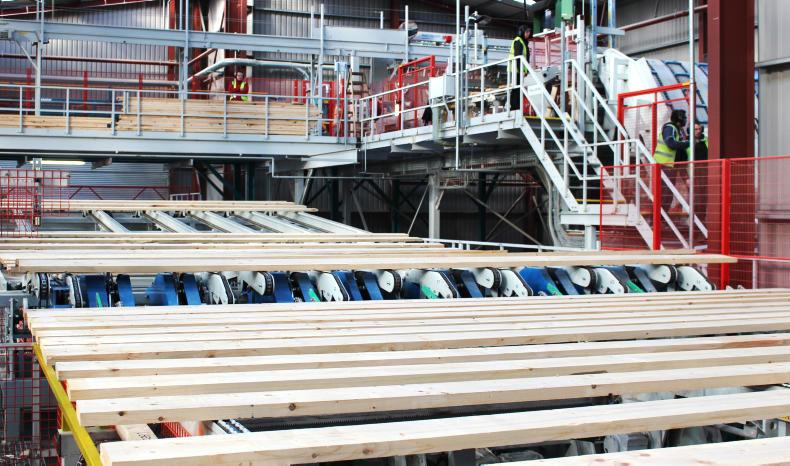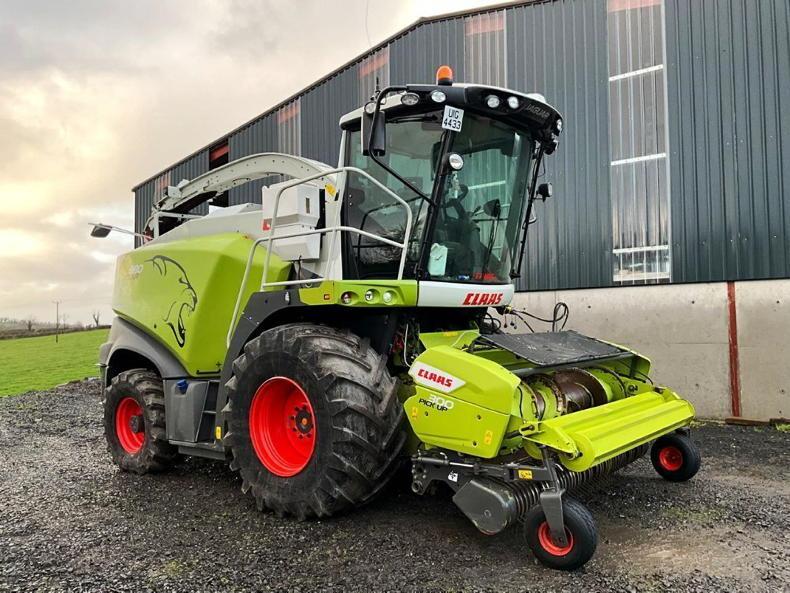Average standing timber prices achieved by Coillte for the first quarter in 2019 dropped significantly over the previous year but are much higher than prices for 2017 (Table 1). The average price for all Coillte sales was €70.61/m3 during January to March 2018, rising to €77/m3 last summer before falling back to approximately €63/m3 from October 2018 to March 2019. It should be remembered in analysing timber prices that there are cyclical price trends as in other products.
Last year’s prices from April to September were exceptionally high. So, comparing prices is a glass half full-half empty exercise. Coillte prices have fallen significantly when compared with last summer but have dramatically increased compared with average prices (€54.19/m3) achieved in 2018 (Table 1).
While overall prices are easy to evaluate for Coillte sales, the trend is less clear for private sales (Table 2).
There is insufficient data available for these to draw a firm conclusion about overall price movement, but certain assumptions can be made by examining prices achieved by size categories.
Forest owners
Most forest owners are interested in prices achieved for category sizes that reflect the age and timber sizes they intend to harvest. Those with forests at the first thinning stage will be interested in prices achieved for small log sizes in the 0.075m3 to 0.174m3 range. Prices achieved for small logs were €12.57 m3 to €24.34/m3 but these fluctuate widely in private sales due to factors such as quality, access and distance of harvested forests from processing mills. Price fluctuations are also due to the small number of returns by forestry companies and sawmills that contribute to the confidential Wood Price Quarterly (WPQ) compiled by UCD on behalf of the Irish Timber Growers Association. However, the overall increase in prices from private sales for small logs (pulpwood) is up.
The demand for small logs in Ireland for panelboard production and wood energy is strong but as we reported last year, good prices are still being achieved by exporting to the UK. Forestry companies are filling shipments through at least five ports in the east, west and midwest.
For large logs, prices of up to €62/m3 were achieved for private sales for the first quarter of this year compared with €52/m3 for the same period last year which is encouraging. However, Coillte prices for large logs are €8/m3 higher than private prices. This differential is due to a number of factors. For example, Coillte prices are for electronic auction sales averaged on a quarterly basis. These prices do not include the quota prices agreed annually with the sawmills which make up about 50% of the Coillte supply.
As competition for logs can be intense during auctions, prices are higher than quota prices. In addition, Coillte retains pulpwood or small logs for its Medite Smartply mills in Waterford and Clonmel, which results in higher average prices. Coillte also has the advantage of being in a position to present larger lots for sale, resulting in better economies of scale when harvesting and management costs are factored in.
The drop in prices and recent fall in demand are due to uncertainty over Brexit and continued sterling weakness. These are testing the resilience of the timber processing sector but log prices remain strong compared with 2017 and early 2018. However, the advice to forest owners is to shop around.
Small lots
Forestry companies and sawmills are still keen to purchase thinnings and clearfells even in small lots providing access and quality are up to standard. The lucrative sales are for clearfells so the grower has time to sell or retain the lot depending on prices.
In windfirm sites, it may be advisable to carry out a further thinning if prices are not sufficiently high as even a 15% increase can represent over €3,000/ha for final harvest, which would cover most of the reforestation costs. Sawmills, forestry companies and consultants are encouraged to make prices available to the WPQ, which is an important source of price data especially for small logs.
The WPQ is still sourcing its data from too few sales and as a result it still contains data gaps as can be seen from Table 2. Yet, this information and Coillte price data are important sources of information for timber growers with forests at the productive stage.









SHARING OPTIONS